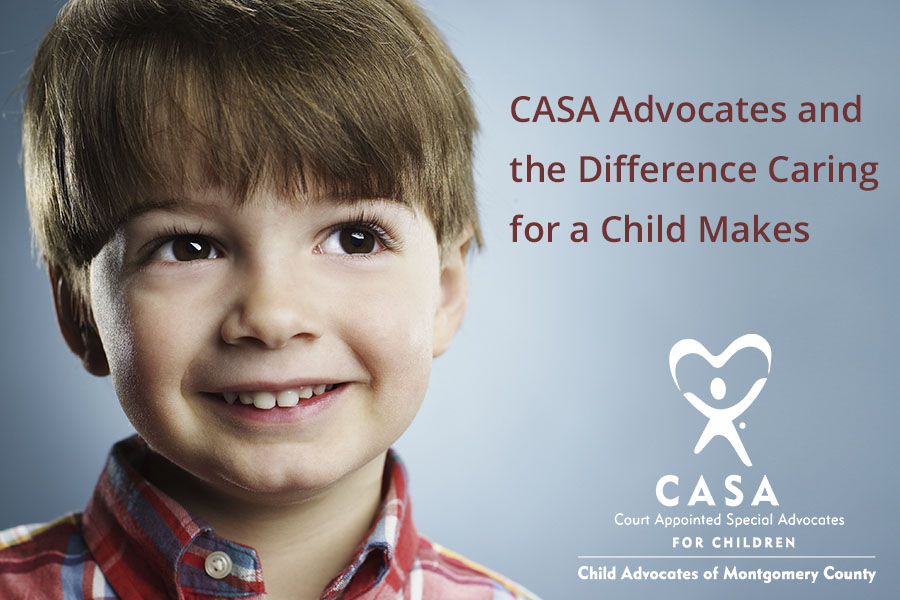CASA Advocates and the Difference Caring for a Child Makes

Do you know how CASA began? In 1976, King County Superior Court Judge David W. Soukup of Seattle, Washington had an idea that would change the lives of millions of children and revolutionize the child welfare court cases. Judge Soukup did not believe he was receiving all the facts to decide the futures of these children. In 1977, the pilot program of Court Appointed Special Advocates was instituted.
A grant from the Edna McConnell Clark Foundation of New York City, one of CASA’s earliest and strongest supporters, helped to establish CASA programs in courts country-wide. The first CASA program in Texas was the Dallas CASA, founded in 1980.The effectiveness of Judge Soukup’s vision is remarkable and, as you can see, far-reaching. CASA Advocates across the United States make a difference in the lives of abused and neglected children every day. Children with a CASA Advocate are more likely to find a safe, permanent home. They are 50% less likely to re-enter foster care and more prone to be adopted.
Often, more services are requested by the Advocate for the child, so he or she receives more help while in the system. Advocates perform in-depth research on the child, including interviewing family, friends, teachers, etc. in an effort to serve in their most effective capacity when representing that child.
The CASA Advocate speaks up for his or her child. Children without a CASA may have little or no voice in the system or their best interests—something an Advocate always has in mind. The volunteers frequently spend a greater amount of time with the children they represent than paid Guardian ad Litems, thereby giving each child a stable, responsible adult presence in a life that can be unpredictable. Children in foster care may experience multiple changes in placement homes and changes of school. However, children with a CASA Advocate are less likely to be bounced from home to home. Even if this was the only way Advocates had an effect on that child’s life, it is a worthy goal – giving a child constancy and solidity in a new environment and sometimes frightening set of circumstances.
CASA Volunteers improve the representation of children in the system, potentially reducing some of the workload of CPS caseworkers and attorneys. So, CASA Advocates save the taxpayer money. Judges have rated CASA volunteers higher than lawyers in nine competencies, one of which is filing written reports. The reports filed by Advocates are based on their study of the child and his or her past. CASA Volunteers serve as the “eyes and ears” for the court, and judges are especially interested to hear an Advocate’s recommendation for the child..
A child with a CASA Advocate does better in school. He or she is more likely to pass courses and exhibit better behavior in school. University of Houston and Child Advocates, Inc. researched the effectiveness of CASA Volunteers and found that children with an Advocate scored better on nine protective aspects:
- Neighborhood resources
- Interested adults
- Sense of acceptance
- Controls against deviant behavior
- Models of conventional behavior
- Positive attitude towards the future
- Valuing achievement
- Ability to work with others and
- Ability to work out conflicts
Given the great effect these volunteers can have on maltreated children’s lives, wouldn’t you like to join this winning team? CASA Advocates are people just like you, coming from all walks of life, with one common goal: Caring for a child and that young person’s best interests.
